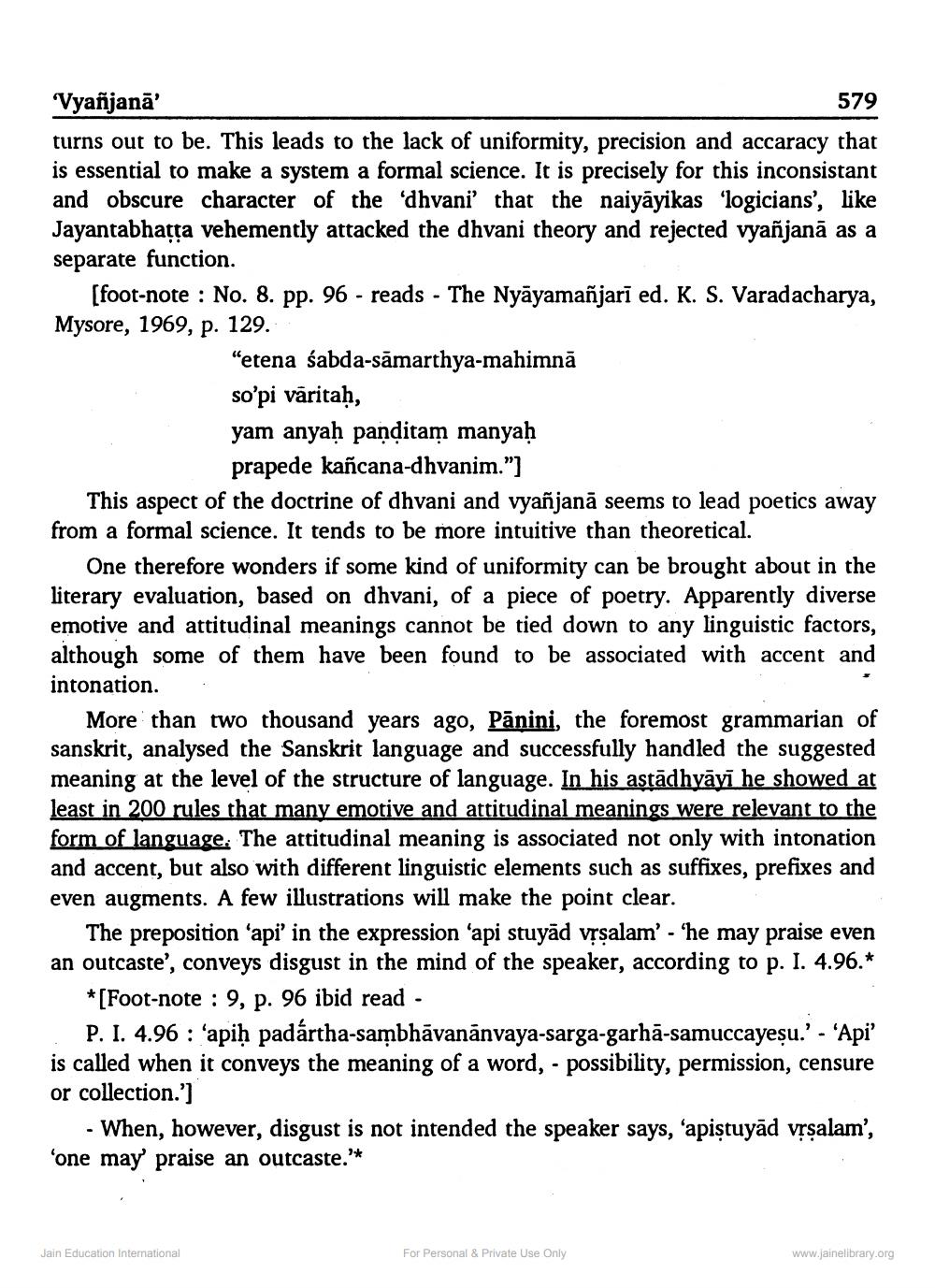________________
Vyañjanā
579
turns out to be. This leads to the lack of uniformity, precision and accaracy that is essential to make a system a formal science. It is precisely for this inconsistant and obscure character of the 'dhvani' that the naiyāyikas 'logicians', like Jayantabhasta vehemently attacked the dhvani theory and rejected vyañjanā as a separate function.
[foot-note : No. 8. pp. 96 - reads - The Nyāyamañjarī ed. K. S. Varadacharya, Mysore, 1969, p. 129.
"etena śabda-sāmarthya-mahimnā so'pi vāritaḥ, yam anyaḥ panditam manyaḥ
prapede kañcana-dhvanim.”] This aspect of the doctrine of dhvani and vyañjanā seems to lead poetics away from a formal science. It tends to be more intuitive than theoretical.
One therefore wonders if some kind of uniformity can be brought about in the literary evaluation, based on dhvani, of a piece of poetry. Apparently diverse emotive and attitudinal meanings cannot be tied down to any linguistic factors, although some of them have been found to be associated with accent and intonation. .
More than two thousand years ago, Pānini, the foremost grammarian of sanskrit, analysed the Sanskrit language and successfully handled the suggested meaning at the level of the structure of language. In his astādhyāyī he showed at least in 200 rules that many emotive and attitudinal meanings were relevant to the form of language. The attitudinal meaning is associated not only with intonation and accent, but also with different linguistic elements such as suffixes, prefixes and even augments. A few illustrations will make the point clear.
The preposition 'api' in the expression 'api stuyad vșsalam' - 'he may praise even an outcaste', conveys disgust in the mind of the speaker, according to p. I. 4.96.*
*[Foot-note : 9, p. 96 ibid read -
P. I. 4.96 : 'apiḥ padártha-sambhāvanānvaya-sarga-garhā-samuccayeșu.' - 'Api' is called when it conveys the meaning of a word, - possibility, permission, censure or collection.')
- When, however, disgust is not intended the speaker says, 'apiştuyād vrsalam', ‘one may praise an outcaste.'*
*
.
Jain Education International
For Personal & Private Use Only
www.jainelibrary.org




